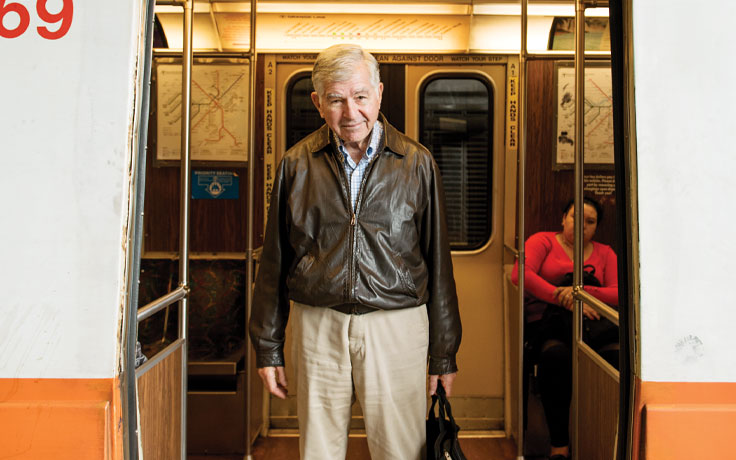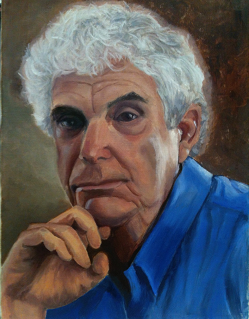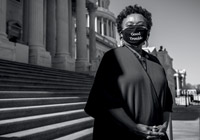“HOW DO YOU FEEL ABOUT RETIRING?”
I asked Michael Dukakis, who is stepping down after teaching at UCLA’s Luskin School of Public Affairs and at Northeastern University in Boston, running for president of the United States and serving three terms as governor of Massachusetts.
“Kind of mixed. We’re both the same age, we’ve been active. I suppose I would throw the same question back. How do you feel about it?”
How do I feel about retirement? Actually, by not thinking much about it, by looking ahead to my next activity. Dukakis, it turns out, has somewhat the same view of life. It made for an enlightening conversation between two people of the same generation who continue to have a deep interest in politics and public policy.
We were Zooming. He was at his Massachusetts home. I was in Los Angeles. The editors at Blueprint thought it would be interesting for us, two veterans of politics, to get together for a conversation about what we’ve learned in our long careers, and to offer readers lessons that will guide them to a better future.
I had doubts about advising people on how we can reach a brighter tomorrow. I’ve spent my life in journalism, a trade well known for being negative. But Dukakis, whom I have known since the mid-’70s, has a sunnier view, which made him a good teacher for generations of students.
Dukakis was born in 1933. He served as governor of his native state, was the Democratic nominee for president in 1988 and then taught at Northeastern and Luskin. I’ve been a reporter and editor since 1956. We spoke earlier this spring.
The Dukakis-Boyarsky conversation
Bill Boyarsky: What has been the impact of the COVID pandemic on America?
Michael Dukakis: It certainly has been different, and it’s like nothing most of us have had to live through. Interestingly, in the early 1900s my family settled in Lowell, Massachusetts. All of them got the Spanish flu in 1918. All of them, including my dad. Two of them died: his father and his oldest brother. And I’d heard that story occasionally but it never really registered the way it has now.
Did the Spanish flu have an impact on my father? I suspect so. He was 15 years old, just arrived in the United States from a predominantly Greek town in western Turkey. He became a doctor and practiced medicine for over 50 years in the city of Boston. But our family didn’t talk a lot about the Spanish flu.
Boyarsky: Tell me more about what you think of COVID’s impact.
Dukakis: I think the jury is still out on that. Remember that the response to the pandemic, while it was slow and badly done under Trump, certainly got massive public attention. It was focused; it was televised; it involved pictures. It certainly was the issue for all of us over the course of the past year. It also gave public leaders an opportunity to lead if they wanted to lead, or not to lead if they didn’t want to. We have had an interesting division of public opinion in this country that I don’t think we had in 1918, with certain states objecting [and others] trying to push a response aggressively. I don’t think that was the case back in 1918.
Boyarsky: We weren’t as divided then, one state doing one thing, another doing something else.
Dukakis: There was plenty of division. Remember, we had anarchists, who were blowing up houses of attorneys general. It’s not as though that was a nice time, but it just didn’t have the kind of intensity of pressure. Wilson was president. He himself was having serious physical problems. He was not a well person and he was unable to take a dynamic leadership role.
But people didn’t face what we faced, the response of Trump, his repeated assertion that this was a stolen election, that he really won overwhelmingly, all of which is nonsense. But it certainly played a major role in the period between the end of the election and Biden’s inauguration. And that’s been quite different [than in 1918]. And there are people, amazingly, including Trump, who still think he won.
Boyarsky: I think the country is going to come out of this a more disturbed place. Young people will be more cynical, disillusioned.
Dukakis: We’ll have to see in terms of how Biden will handle it. I think he has done an impressive job, certainly far more effectively than Trump did, who I think has always been kind of a disaster. He can’t manage his way out of a paper bag. But at the same time, he kept minimizing the importance of what was going on, that it really wasn’t serious, that it was going to be over in a relatively short period of time.
If, in fact, Biden is right, and in the next month or two we’re going to be getting closer and closer to a solution to the problem, if you will, that gets us back to normal again, then that will make a difference. But it’s still very early at this point.
Boyarsky: What about Trump’s lasting impact? Personally, I think Trump will fade away like some old Borscht Belt comic, pushed aside when audiences tire of his act.
Dukakis: I don’t think he is going to fade away. Will he be a force? I don’t think anyone can answer that question at this point. It’s still too early. He’s still a very divisive kind of guy. But he does have a very strong, loyal following. It will be interesting to see, as the Biden administration increasingly takes over and takes responsibility for handling the crisis, whether or not even [Trump’s] so-called base begins to recognize how competent [Biden] has been. But remember these things change very quickly. Let’s assume that in six months the country is back in relatively good shape, in part or in large part because we play a very constructive role and a collaborative role, even with folks who don’t agree with us on certain things, when it comes to the planet’s future. I hope we can do that. It’s so important.
Boyarsky: Is the Biden optimism catching?
Dukakis: I think people are reacting to what he is doing in a positive way. Can he turn this country into an optimistic country again that deals with both our domestic and international issues effectively and positively and well? We shall see. It’s not going to be easy, but it’s essential. I know Biden thinks it’s essential, and the people around him think it’s essential.
Boyarsky: At this point you don’t think it’s a positive country, then?
Dukakis: Well, we’ve gone through a very rough year. Are we positive? More positive than we were six months ago. Or three months ago. But can we get a sense of optimism back, and can people begin to feel strongly and positively about our future and the world’s future and the planet’s future? That remains to be seen.
Boyarsky: Finally, what are your plans for the future?
Dukakis: This is a new situation for me. I have always been a very active person, from boyhood. And all of a sudden, I find myself retired. Not really, because I’m still staying reasonably active. And as restrictions lift, hopefully, and we positively resolve our public health problem, we’ll move on to other things. I am going to stay as active as I possibly can, and be as helpful as I possibly can. I am going to work with a lot of the folks that I was able to work with, not just as governor but have a new administration that has done a good job. Well, we’ll move on to other things, and public attention will focus on them, so this is still very much a fluid situation. As I’ve said to you, I think Biden and company and the Congress have done a pretty impressive job.
Tomorrow there will be something else. We still have a situation internationally, I’m sorry to say, that continues to be pretty contentious. We’ve got a new player — China. And they’re formidable. One of the things I am particularly interested in is whether the United States and also the EU, our allies, have the good sense to try to make that a constructive relationship, rather than get us back into another Cold War, which is something that you and I, at our age, don’t want to get into again. We lived through a Cold War for decades.
And we’re facing some existential issues when it comes to the future of the planet, and I hope we can also as a citizen, and make whatever contribution I can, as you and I and others like us approach our — what? — 90th year.
Boyarsky: Don’t call them the golden years.
Dukakis: This is the first time, Bill — I don’t know whether you share this — the first time in my life where I actually really thought about what happens when you start going. Can you maintain an active, positive life as you are aging?
Boyarsky: They say your age is only a number.
Dukakis: That is true, but I think it’s a little more than a number. I’m a guy who, when he was a 17-year-old kid, ran the Boston Marathon. I was an athlete. Three sports. Always up, always active. Well, I’m not quite as strong as I used to be. I’m still walking every day. I am still making sure I do that, but it’s not quite the same body as it was years ago.

























